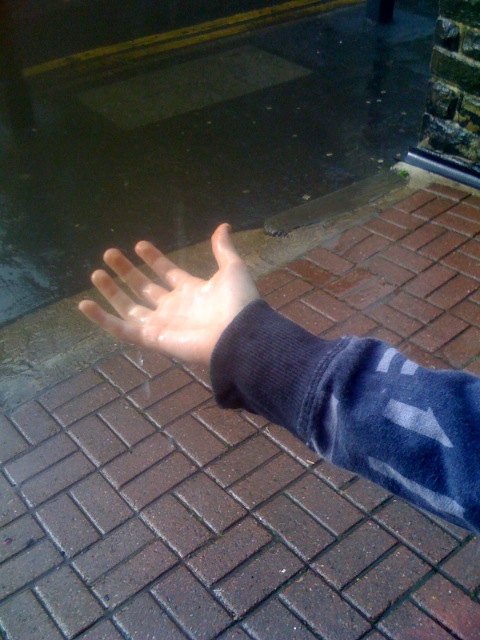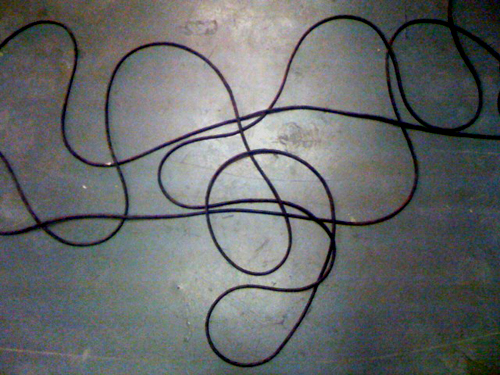A report on c4 news tonight about fighters in Afghanistan and their sabotage of US supported (re-)construction efforts. In some place near Kabul men have come along at night and stolen the trucks used for building a road. The rest of the machinery they have set on fire. Sundry locals are gathered in the dust, throwing water and gravel from buckets into the flames. Desultory efforts. The report quotes a Taliban saying:
"The American's may have the watches, but we have the time."
*
S and I involved in a complex game of joint story telling involving the characters of an ant eater, a potato and a wolf. Often these are just disguised contests where each of us tries to destroy the character created by the other but this one turns out more complex. Ant eater turns potato into rocket ship so they can all go on an adventure. There is some battle in space against laser armed forces. Then they land on a desert Planet – Planet Doom. The wolf wants to turn into binoculars but Seth (taking over) says the ant eater cannot turn Creatures into Items. He can only turn Items into Items or Items into creatures. Not the other way around. Why not I'm asking, arguing the case of the Wolf that wants to be binoculars. That is the Law says Seth. I say look, the Wolf will settle for only half his dream – can you please have the ant eater turn him into a telescope? No. The Ant Eater cannot turn creatures into Items. The Wolf is disappointed. Ant eater turns the rocket ship that was a potato into a telescope but by then its too late and the bad guys have arrived already and the absence of the rocket ship leaves no means of escape. We are laughing too much. The bad guy has a name that is something like Coffee Table Biscuit Suitcase Mike Emperor of Gallactica. We stop the story in the middle where it belongs.
*
Heading up to see the last night (Saturday 3rd) of That Night Follows Day at Tramway in Glasgow. Two further UK performances of the piece next week in Manchester at Contact next Friday and Saturday 9th and 10th of May. Hearing great reports of the piece on tour and looking forward to catching up with it again.

